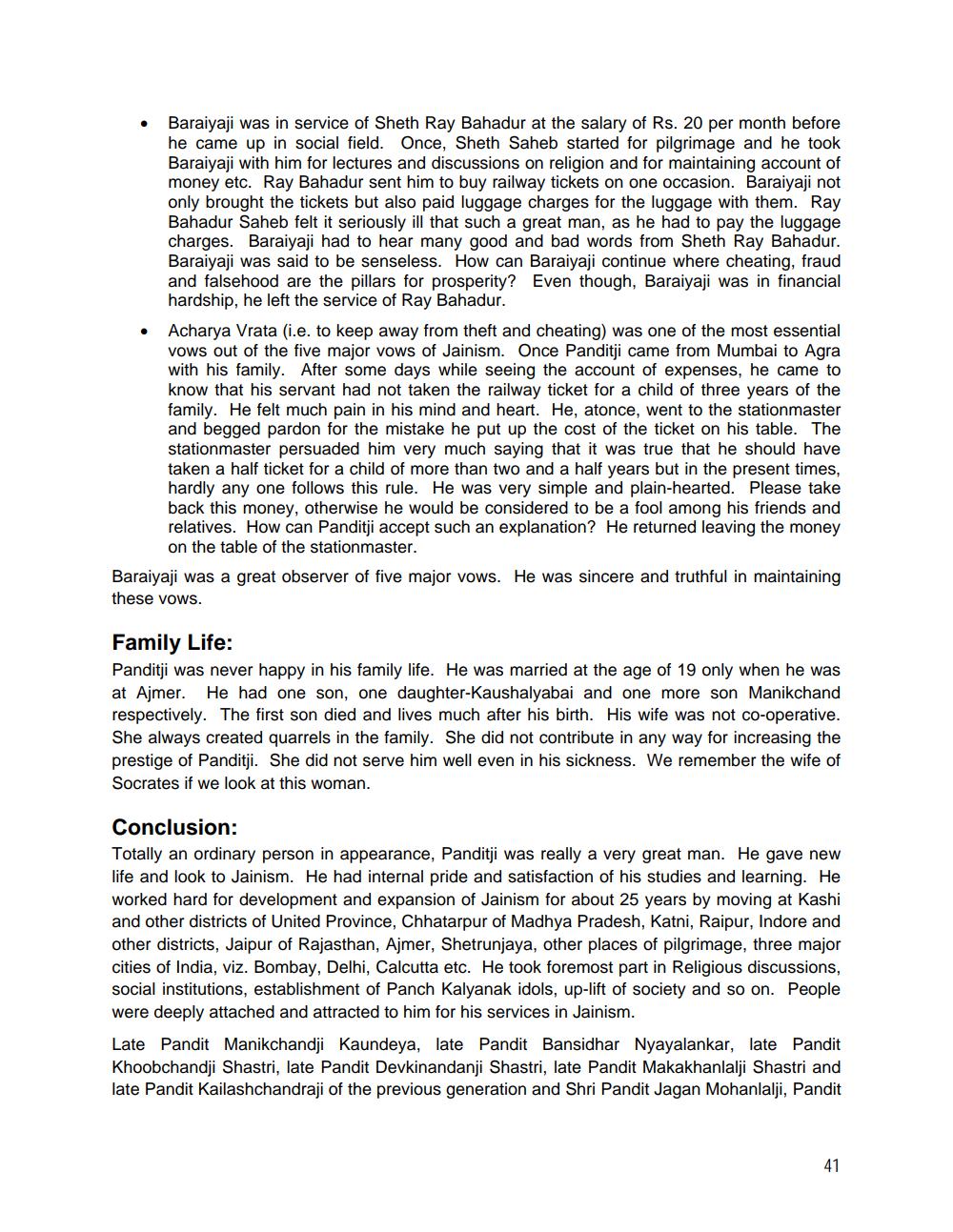Book Title: Guru Gopaldasji Baraiya Author(s): Atmanandji Publisher: Z_Comtemporary_Jain_Legends_007736_STD.pdf View full book textPage 4
________________ Baraiyaji was in service of Sheth Ray Bahadur at the salary of Rs. 20 per month before he came up in social field. Once, Sheth Saheb started for pilgrimage and he took Baraiyaji with him for lectures and discussions on religion and for maintaining account of money etc. Ray Bahadur sent him to buy railway tickets on one occasion. Baraiyaji not only brought the tickets but also paid luggage charges for the luggage with them. Ray Bahadur Saheb felt it seriously ill that such a great man, as he had to pay the luggage charges. Baraiyaji had to hear many good and bad words from Sheth Ray Bahadur. Baraiyaji was said to be senseless. How can Baraiyaji continue where cheating, fraud and falsehood are the pillars for prosperity? Even though, Baraiyaji was in financial hardship, he left the service of Ray Bahadur. Acharya Vrata (i.e. to keep away from theft and cheating) was one of the most essential vows out of the five major vows of Jainism. Once Panditji came from Mumbai to Agra with his family. After some days while seeing the account of expenses, he came to know that his servant had not taken the railway ticket for a child of three years of the family. He felt much pain in his mind and heart. He, atonce, went to the stationmaster and begged pardon for the mistake he put up the cost of the ticket on his table. The stationmaster persuaded him very much saying that it was true that he should have taken a half ticket for a child of more than two and a half years but in the present times, hardly any one follows this rule. He was very simple and plain-hearted. Please take back this money, otherwise he would be considered to be a fool among his friends and relatives. How can Panditji accept such an explanation? He returned leaving the money on the table of the stationmaster. Baraiyaji was a great observer of five major vows. He was sincere and truthful in maintaining these vows. Family Life: Panditji was never happy in his family life. He was married at the age of 19 only when he was at Ajmer. He had one son, one daughter-Kaushalyabai and one more son Manikchand respectively. The first son died and lives much after his birth. His wife was not co-operative. She always created quarrels in the family. She did not contribute in any way for increasing the prestige of Panditji. She did not serve him well even in his sickness. We remember the wife of Socrates if we look at this woman. Conclusion: Totally an ordinary person in appearance, Panditji was really a very great man. He gave new life and look to Jainism. He had internal pride and satisfaction of his studies and learning. He worked hard for development and expansion of Jainism for about 25 years by moving at Kashi and other districts of United Province, Chhatarpur of Madhya Pradesh, Katni, Raipur, Indore and other districts, Jaipur of Rajasthan, Ajmer, Shetrunjaya, other places of pilgrimage, three major cities of India, viz. Bombay, Delhi, Calcutta etc. He took foremost part in Religious discussions, social institutions, establishment of Panch Kalyanak idols, up-lift of society and so on. People were deeply attached and attracted to him for his services in Jainism. Late Pandit Manikchandji Kaundeya, late Pandit Bansidhar Nyayalankar, late Pandit Khoobchandji Shastri, late Pandit Devkinandanji Shastri, late Pandit Makakhanlalji Shastri and late Pandit Kailashchandraji of the previous generation and Shri Pandit Jagan Mohanlalji, PanditPage Navigation
1 2 3 4 5 6
